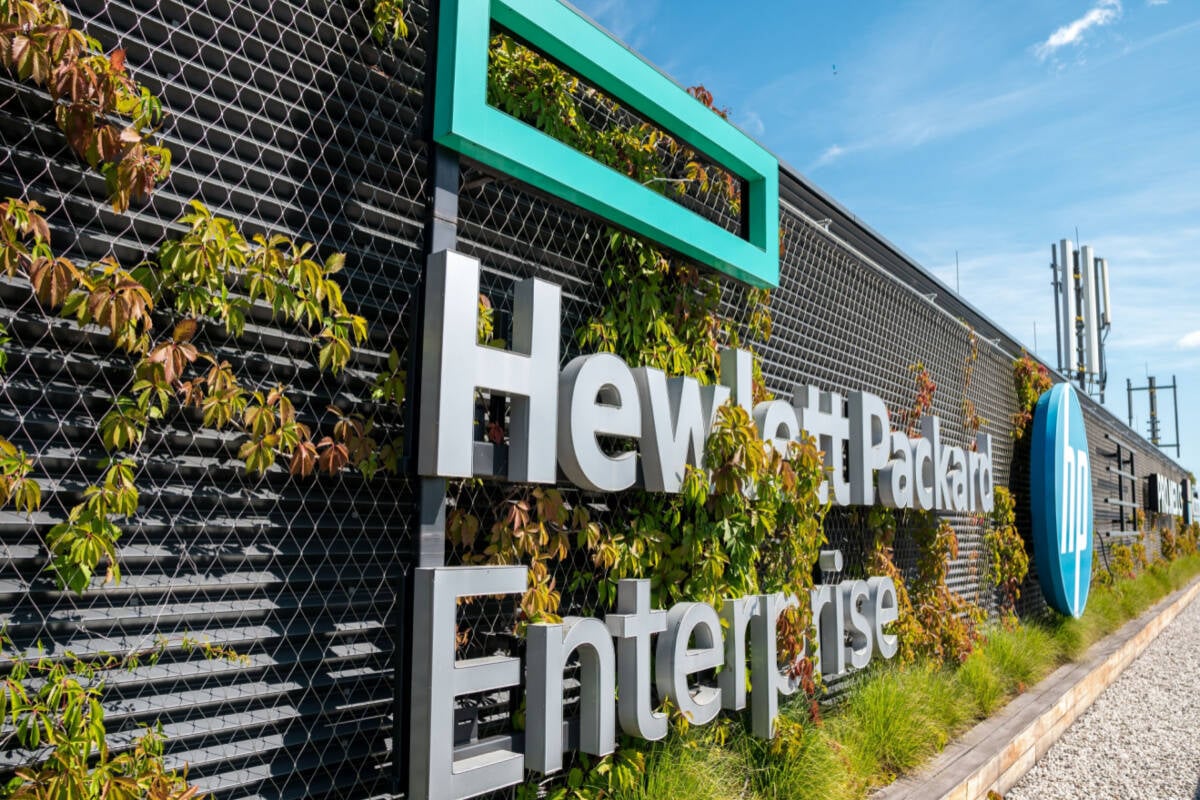Server Sales Down 31% At HPE As Enterprises Hack Spending

Hewlett Packard Enterprise has reported a dramatic decline in server revenues as corporate customers cut back on spending amid a more cautious outlook.
Compute, HPE’s largest division by far, declined 31 percent year-on-year to $2.585 billion for the three months ended October 31 [PDF], the company’s final quarter of its 2023 financial year. Compute was up 1 percent sequentially.
Jeremy Cox, HPE senior veep and interim CFO, said the reason for the drop in server sales was that "de-elongation and customer digestion" had "continued to be most prevalent" in Compute. He added robust sales a year ago had made for a "difficult" comparison period.
"Declining average unit prices from a record high in Q1 '23 was also a meaningful driver," added Cox on a conference call. "However, two straight quarters of sequential improvement in demand lends further confidence to our FY'24 outlook."
Just this week, market researcher Omdia warned server shipments are on track to shrink 20 percent in 2023 versus the prior 12 months. It claimed, however, that unit prices are rising as customers buy higher specified servers configured with co-processors to up the performance in relation to specific applications.
HPE isn't alone in facing challenges with its server business: rival Dell's Infrastructure Solutions Group, which houses servers, storage and networking products, has reported double digit decline in the first half [PDF] of the corporation’s fiscal 2024 ended August 4. Dell reports Q3 numbers this week.
In contrast, pure cloud rivals are still growing faster than their legacy counterparts. AWS, for example, reported a turnover in sales of $23.1 billion in calendar Q3, up 12 percent, and $6.97 billion in operating profit.
- UK govt finds £225M for Isambard-AI supercomputer powered by Nvidia
- It took seven years but over-40s fired by HP win $18m settlement
- HPE starts Hybrid Cloud push, will herd users into GreenLake subs service
- HPE prepares for spicy affair with India to churn out $1B worth of servers
Storage was also a problem child for HPE in its Q4, declining 13 percent to $1.111 billion. Again this was a difficult comparison period, but represents the third straight quarter of shrinkage, said Cox.
HPE divisions on the up in the quarter included HPC and AI, which climbed to $1.18 billion from $862 million a year ago; Intelligent Edge swelled 40 percent to $1.357 billion. It included only a "modest" amount of AI revenue, meaning supercomputing was the shining star.
As part of a multi-year mission to cut overheads, HPE's operating expenses for Q4 fell to $6.84 billion from $8.21 billion a year earlier. As such, this helped HPE to swing to an operating profit of $507 million compared to an operating loss of $339 million a year earlier.
For the year, HPE revenue grew two percent to $29.1 billion and operating profit was $2.089 billion, versus $783 million. So let’s call HPE’s financial year a mixed bag and leave it at that.
What’s not so mixed is analysts’ reactions to the company’s forecast for the current quarter, its Q1 of fiscal 2024 that ends in January. HPE estimates revenue to be $6.9 billion to $7.3 billion, lower than the average consensus. ®
From Chip War To Cloud War: The Next Frontier In Global Tech Competition
The global chip war, characterized by intense competition among nations and corporations for supremacy in semiconductor ... Read more
The High Stakes Of Tech Regulation: Security Risks And Market Dynamics
The influence of tech giants in the global economy continues to grow, raising crucial questions about how to balance sec... Read more
The Tyranny Of Instagram Interiors: Why It's Time To Break Free From Algorithm-Driven Aesthetics
Instagram has become a dominant force in shaping interior design trends, offering a seemingly endless stream of inspirat... Read more
The Data Crunch In AI: Strategies For Sustainability
Exploring solutions to the imminent exhaustion of internet data for AI training.As the artificial intelligence (AI) indu... Read more
Google Abandons Four-Year Effort To Remove Cookies From Chrome Browser
After four years of dedicated effort, Google has decided to abandon its plan to remove third-party cookies from its Chro... Read more
LinkedIn Embraces AI And Gamification To Drive User Engagement And Revenue
In an effort to tackle slowing revenue growth and enhance user engagement, LinkedIn is turning to artificial intelligenc... Read more

